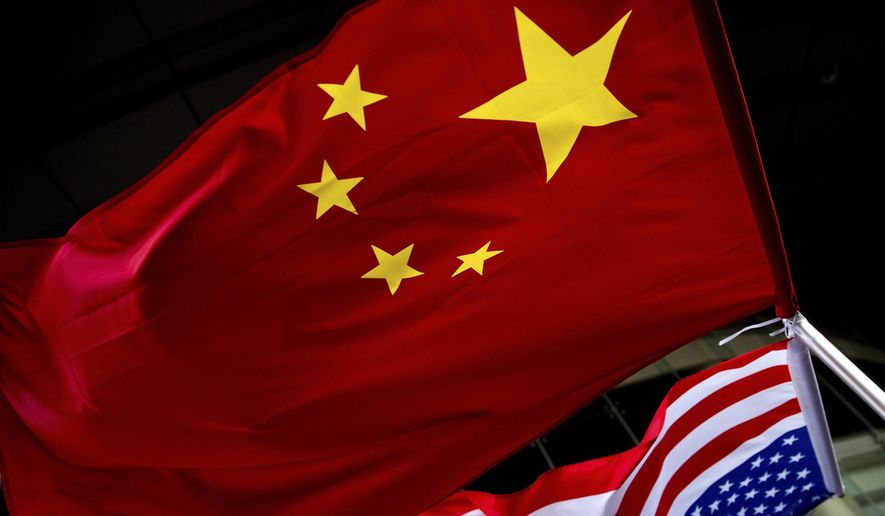A version of this story appeared in the daily Threat Status newsletter from The Washington Times. Click here to receive Threat Status delivered directly to your inbox each weekday.
Chinese hackers are stepping up efforts to get inside networks used to control critical U.S. infrastructure in preparation for future sabotage, according to FBI Director Christopher A. Wray.
The “China threat” posed by cyber operations inside infrastructure is not a new danger, Mr. Wray said in a speech to a major security gathering in Germany, noting state-sponsored Chinese hackers conducted pre-positioned cyberattacks in oil and natural gas companies’ networks as early as 2011.
“But these days, it’s reached something closer to a fever pitch,” Mr. Wray said at the Munich Security Conference over the weekend. “What we’re seeing now, is China’s increasing build-out of offensive weapons within our critical infrastructure, poised to attack whenever Beijing decides the time is right.”
A key example is the long-term access by Chinese government hackers in critical networks used to control telecommunications, energy, water and other key infrastructure.
“China-sponsored hackers known as Volt Typhoon were hiding inside our networks, lying in wait for the moment China might choose to use their access to hurt American civilians,” Mr. Wray said, noting the attacks were not limited to the United States.
SEE ALSO: China ‘slices the salami’ ever closer to Taiwan with latest clash
The FBI, working with intelligence agencies and allied security services, shut down the Volt Typhoon hackers after the group had obtained what he termed “persistent” or long-term access. Alarm bells went off last year when Microsoft and the Cybersecurity and Infrastructure Security Agency disclosed that Volt Typhoon had targeted infrastructure in Guam, a major U.S. military hub in the Pacific.
Mr. Wray in his speech urged all “rule-of-law nations” to unite against Chinese hacking operations.
“I know there are some representatives of the [Chinese Communist Party] walking around town, but I don’t mind them knowing we’re onto them,” he said.
In Beijing, Chinese Foreign Ministry spokeswoman Mao Ning on Monday took sharp issue with Mr. Wray’s comments, and charged that it was the U.S. that was the world’s biggest practitioner of state-sponsored hacking and cyber espionage.
“Without valid evidence, the U.S. jumped to an unwarranted conclusion and made groundless accusations against China. It is extremely irresponsible and is a complete distortion of facts,” Ms. Ning told a press briefing in Beijing. “In fact, it is the U.S. Cyber Force Command that openly declared that the critical infrastructure of other countries is a legitimate target for U.S. cyberattacks.”
Chinese officials have accused the FBI director in the past of hyping the cyber threat to build up his own agency’s power and budget.
Mr. Wray told the Munich gathering that the FBI and its partners have shut down successfully four Russian hacking groups, including a recently neutralized operation by cyber spies from the Kremlin’s GRU military intelligence agency.
However, Chinese cyberattacks and operations are larger than all other nations’ activities combined, he noted.
“The cyber threat posed by the Chinese government is massive,” Mr. Wray said, noting Beijing’s increased use of artificial intelligence to magnify operations as well as stealing AI technology and data.
Beijing “has continued to attack the economic security, national security and sovereignty of rule-of-law nations worldwide,” he said.
Chinese cyber threats also are combined with traditional spying and economic espionage, malign influence operations, election interference and transnational repression, U.S. investigators say.
Beijing, he said, is using all elements of national power to undermine nations seeking to maintain international rule of law.
China does not engage in partnerships with others and instead “bullies” people, businesses, organizations and governments. Cyber operations are one aspect of the threat, he said.
If a foreign government fails to follow Beijing’s demands and insists on standing up for freedom, “you might just find illegal police stations in your territory,” Mr. Wray said, “or Ministry of State Security agents in China threatening the grandparents of overseas Chinese students.
Chinese tactics also include the use of harassment and hacking against companies, inside electrical power stations, phone companies and other sites, he said.
The goal of the operations is to be “poised to take them down when they decide you stepped too far out of line, and that hurting your civilian population suits the CCP,” Mr. Wray said.
• Bill Gertz can be reached at bgertz@washingtontimes.com.




Please read our comment policy before commenting.